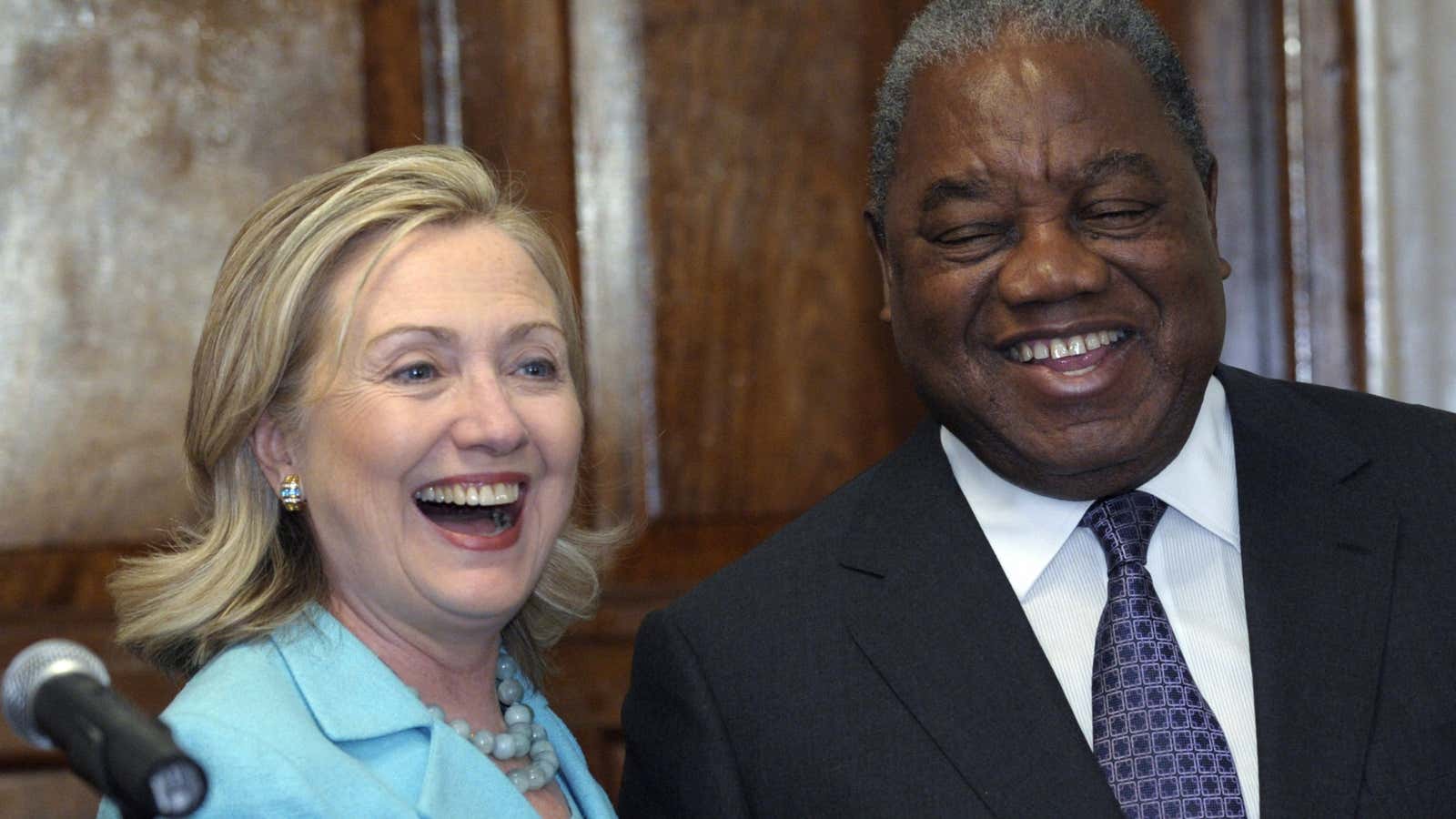Zambia’s former president has been charged with channeling $11 million from a Nigerian oil deal into a family-controlled bank account. Today’s arrest of Rupiah Banda underscores both the continued atmosphere of extraction-led corruption in Africa, and the unusually treacherous lives of the continent’s leaders.
Banda disputes the charges, and a London-based representative, Robert Amsterdam, posted a blog item today calling them politically motivated. Banda was released after posting a bond equivalent to $93,000 and surrendering his passport, and is to appear in court again on March 26. The 76-year-old Banda was Zambia’s president from 2008 to 2011, when he lost re-election to current President Michael Sata.
The case involves a 2008 contract for the delivery of 45,000 barrels of oil a day from the Nigerian Petroleum Corporation. Zambian Justice Minister Wynter Kabimba alleges that Banda deposited the proceeds from selling the oil into a Barclays bank account in Singapore rather than the state treasury. The account was allegedly opened by Henry Banda, the former president’s son.
A fresh mining and oil boom is under way across Africa. But according to Transparency International, the continent also has among the highest concentrations of official corruption on the planet. We have previously discussed Nigerian oil corruption. A 2012 report by Global Witness documents mining and oil corruption in Angola, Nigeria and the Democratic Republic of Congo.
At the same time, Africa’s ruling parties are renowned for going after their predecessors and their current opposition. In addition to the Zambia case, Zimbabwean police have carried out a series of arrests of aides to Prime Minister Morgan Tsvangirai on various charges.
